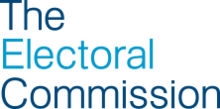Mon 23 May 2016

Client: The Electoral Commission
Programme: 2016 International Visitors’ Programme for the EU Referendum
(Delivered in Manchester and the North West, UK, 2016)
The Client
The Electoral Commission was set up under the Political Parties, Elections and Referendums Act 2000 (PPERA). It is an independent body set up by the UK Parliament. The Commission regulates party and election finance and sets standards for well-run elections and referendums. The Electoral Commission works to support a healthy democracy, where elections and referendums are based on our principles of trust, participation, and no undue influence.
The problem
Following the successes of our 2015 General Election Programme, the UK Electoral Commission again selected Dods to design and deliver a similar Programme of activity for the Referendum on the UK’s membership of the European Union.
In recent years, the Electoral Commission has seen increasing demand from international observers wishing to visit the UK. Given the success of the 2015 International Visitors Programme and global interest in the UK’s future in the EU, The Commission wanted an event that would bring global stakeholders together to focus on administering referendums in the UK and best practice sharing. The event was pitched at the highest level, targeting Chief Executives and Chairpersons from Electoral Commissions around the world.
The Commission were keen to establish a four-day International Visitors’ Programme which incorporated a conference-style background briefing day, two days of visits to areas of interest and a de-brief session following the event.
Our actions
As Manchester Town Hall was hosting the national count and final declaration of the referendum result, it was quickly decided that the International Visitors’ Programme would be based in the North West of England, with Manchester as the base.
The Programme was logistically ambitious and planning strategically was integral. Dods has extensive experience delivering Programmes around the UK and beyond, and as such, we were able to call on existing networks to contribute to the Programme in Manchester. This ensured the smooth delivery of the days in terms of transport and helped engage relevant speakers and stakeholders for content.
As with the 2015 General Election International Visitors’ Programme, managing relationships with local authorities and not overstretching polling station capacity on polling day was paramount. Liaising closely with Electoral Service Managers and polling station personnel in the run-up and during the referendum ensured that delegates could maximise their visits without burdening staff.
The event was delivered over four days during the week of the EU Referendum. Beginning with a Briefing Conference in plenary ensured delegates heard from a range of experts from the Electoral Commission, academia and the media about the history of the UK in the EU, administering UK referendums and expectations for 2016. On the second day, delegates visited Macclesfield Town Hall to see the opening and counting of the postal votes. On polling day itself, participants were split into smaller groups to travel round polling stations. The day culminated in all groups reuniting at Manchester Town Hall for the count event and national declaration by Jenny Watson, Chief Counting Officer and Chair of the Electoral Commission. The fourth and final day saw an optional debrief, providing delegates with an opportunity to share their experiences from the previous days and offer any comparisons with their own counterpart systems.
Conclusions
More than 35 delegates, representing over 20 countries took part in the Programme. From Zambia to Finland, Mexico to Bangladesh, electoral experts from all over the world brought their own expertise and experiences to share with fellow participants. For day one’s Briefing, the core group of participants undertaking the full four-day programme were joined by some additional 30 participants drawn from Embassies in London, Universities in the UK, Netherlands and Japan and NGOs.
Feedback from delegates and the client was extremely positive and several delegates offered testimonials of their experiences. A Member of the Estonian National Electoral Committee said the Programme had been "interesting and extremely well executed”. A Member of the Central Election Commission of Bulgaria commented “the Programme was very useful and worthwhile and gave me a lot of expert experience”.
View all Case Studies